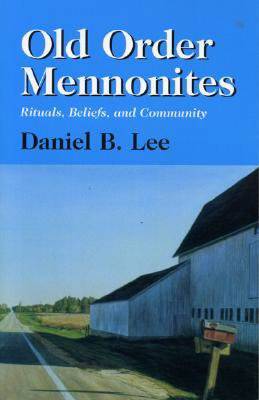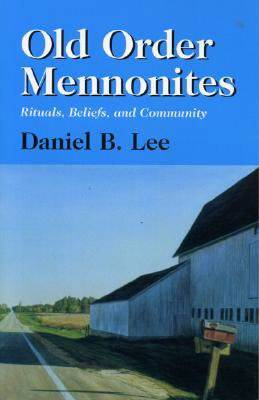
- Afhalen na 1 uur in een winkel met voorraad
- Gratis thuislevering in België vanaf € 30
- Ruim aanbod met 7 miljoen producten
- Afhalen na 1 uur in een winkel met voorraad
- Gratis thuislevering in België vanaf € 30
- Ruim aanbod met 7 miljoen producten
Zoeken
€ 44,95
+ 89 punten
Omschrijving
Mennonites make up only a small fraction of the American religious population, but despite their small number they are divided into a wide variety of groups and denominations. The term "old order" refers to a variety of Mennonite groups that have stridently resisted accommodation to mainstream American culture. Many old order Mennonites are nearly indistinguishable from the Amish. Lee focuses on the Weaverland Conference of Old Order Mennonites, a group formed in 1893 and now consisting of over 5,000 members. A large concentration of Weaverland Mennonites live in upstate New York near Seneca Falls, and Lee focuses his easily readable sociological study on that community. Individual chapters deal with the worship, rituals, rules, and discipline of the group, and with a number of recent defections to a more mainstream Mennonite Church located in the same area. Lee argues that Weaverland Mennonites are held together by their practices alone, rather than by a common underlying set of beliefs. His last chapter develops that theme, arguing that contrary to standard sociological theory, "orthopraxis does not require orthodoxis." General readers and all academic levels.
--Choice Magazine
A Burnham Publishers book
--Choice Magazine
A Burnham Publishers book
Specificaties
Betrokkenen
- Auteur(s):
- Uitgeverij:
Inhoud
- Aantal bladzijden:
- 176
- Taal:
- Engels
Eigenschappen
- Productcode (EAN):
- 9780830415731
- Verschijningsdatum:
- 1/01/2000
- Uitvoering:
- Paperback
- Formaat:
- Trade paperback (VS)
- Afmetingen:
- 143 mm x 216 mm
- Gewicht:
- 254 g

Alleen bij Standaard Boekhandel
+ 89 punten op je klantenkaart van Standaard Boekhandel
Beoordelingen
We publiceren alleen reviews die voldoen aan de voorwaarden voor reviews. Bekijk onze voorwaarden voor reviews.











